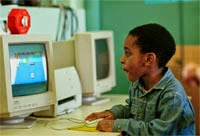Asperger's Children and Difficulties with Processing Information
Processing is a system that helps a youngster select, prepare, and begin to interpret incoming information. AS and HFA kids who have difficulty with processing may have a range of problems related to regulating the use of incoming information. There are five processing skills, which include (1) satisfaction control, (2) focal maintenance, (3) depth and detail of processing, (4) cognitive activation and (5) saliency determination . Kids who have a processing disorder have difficulty mixing with peers, reaching developmental milestones, and developing social skills. Processing disorders range from mild to extremely pervasive. ==> Let’s look at this in greater depth ...
